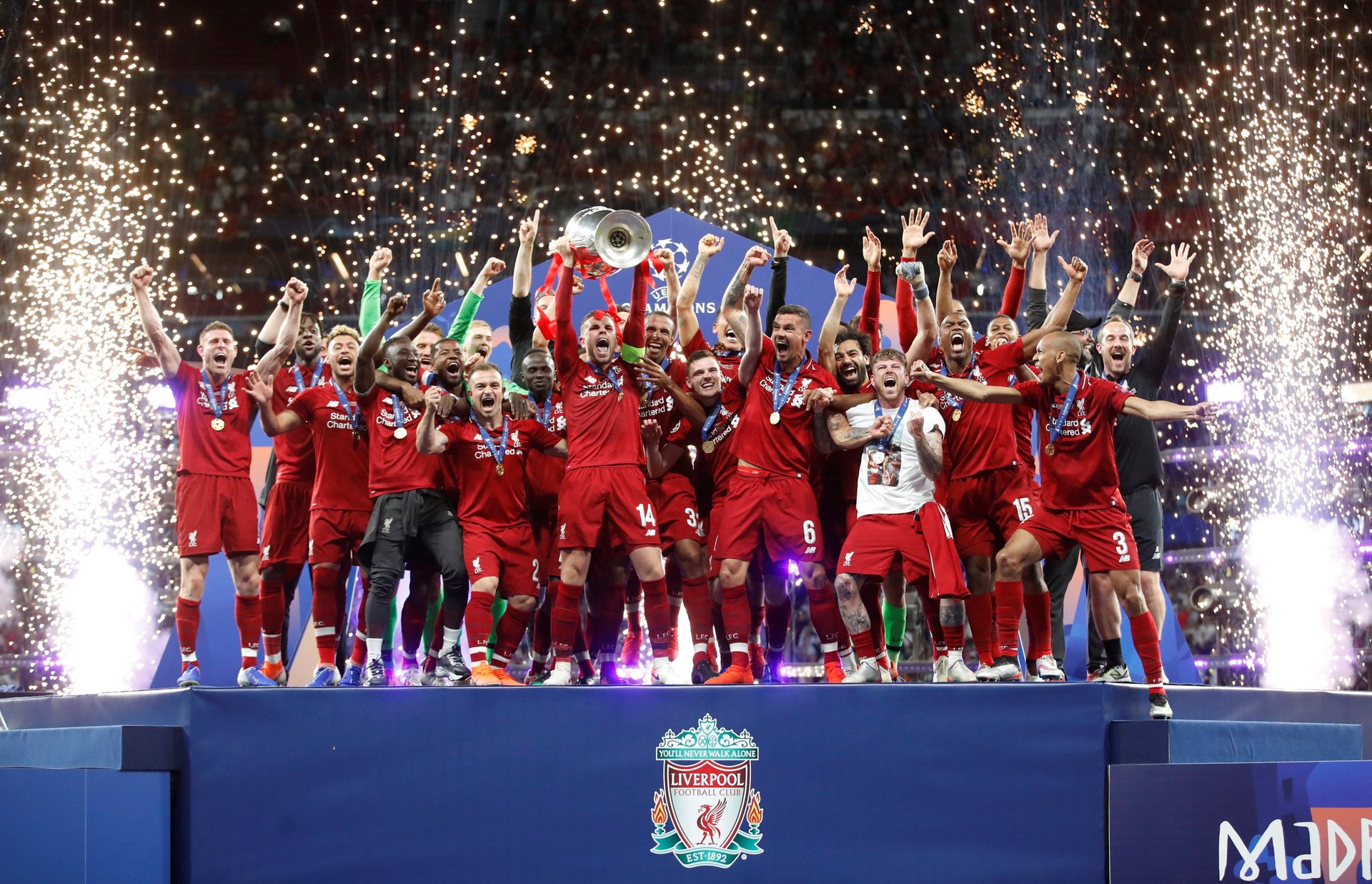The UK government is pushing soccer players to boycott Russia
The big conversation around the Russia-Ukraine crisis in the UK today (Feb. 23) is not about sanctions, or military activity, or support packages. Instead, it’s about a soccer game, the Champions League final, which is scheduled to be played in the Russian city of St Petersburg on May 28.


The big conversation around the Russia-Ukraine crisis in the UK today (Feb. 23) is not about sanctions, or military activity, or support packages. Instead, it’s about a soccer game, the Champions League final, which is scheduled to be played in the Russian city of St Petersburg on May 28.
“If I was on an English team, I would boycott it,” said UK foreign secretary Liz Truss as she did a round of TV and radio interviews about Britain’s position on the escalating situation, and what at least one prominent critic has described as a “tepid” set of sanctions. Truss is the UK’s most senior diplomat.
It’s a familiar political strategy, one that the UK government has used before. During the pandemic, too, officials used elite athletes—and their social and economic status in British society—as a shield against criticism of policy.
The Champions League final in St Petersburg
It is very likely that at least one English team will play in this game, the equivalent of the NFL’s Super Bowl, in May. The English Premier League is the wealthiest and most powerful national competition in the world, and its teams are globally dominant. The Champions League is for Europe’s best teams, and its final game moves to a different city every year.
The players at Chelsea, Liverpool, Manchester City, and Manchester United are from all over the world, but they share a few characteristics that may make them an easy target for media and politicians. They are young, racially diverse, wealthy, popular, and generally from low-income, working-class backgrounds. They reflect the aspirations of a large swathe of British society, and their opinions carry weight.
But although a few do participate in what might be considered political activity, such as campaigns to prevent child poverty, or fundraising for healthcare workers, they are not seasoned politicians. Former player Gary Lineker, now the UK’s best-known sports broadcaster, said Truss was putting “pressure on young footballers to take a tough stance on Russia, as the government doesn’t take a tough stance on Russia.”
Chelsea, a team based in west London, and the reigning European champion, is owned by one of the many Russian oligarchs left untouched by British sanctions.
The pandemic pay cut controversy
In April 2020, with the UK already in strict lockdown (well, most of the UK, since some government officials were apparently partying), then-health secretary Matt Hancock said soccer players should “take a pay cut and play their part.”
In his autobiography, published in September 2020, Liverpool player Andy Robertson was clearly unimpressed, and encapsulated much of the criticism against Hancock. Robertson pointed out how much tax he and his colleagues pay, and also emphasized their often unseen social contributions.
“We don’t need to be singled out, held up as a symbol of selfishness when the opposite is true more often than not,” he said. “Mr Hancock’s comments were unfair and they were also uninformed. There was no mention of other wealthy individuals, in sport or other industries. The only people in the crosshairs were footballers.”
Correction: The date of the Champions League final is May 28, not June 10.